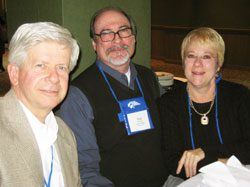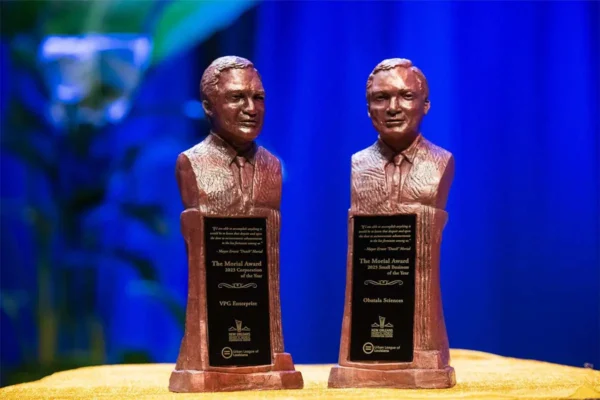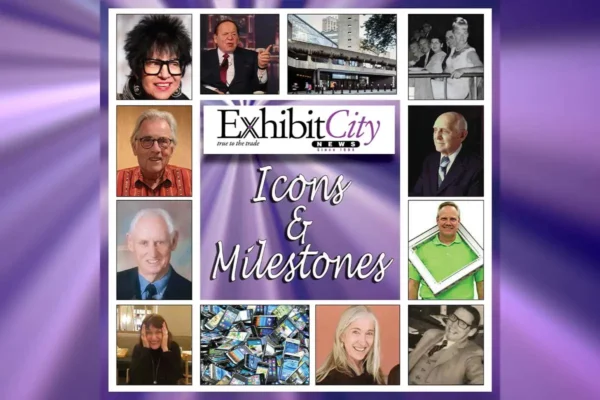The HCEA Summit, which was held on January 14, 2010, at the Sheraton Society Hill Hotel in Philadelphia, has become a vital educational event for the members of the only association solely dedicated to improving the effectiveness of conventions, medical meetings and exhibitions for the healthcare industry. Member organizations include industry exhibitors, associations and suppliers to the industry.

One reason for the importance of the Summit is that the healthcare convention arena has been confronted with a barrage of challenges that carry too much weight to hold until the organization’s annual meeting in June.
Only a year ago the association was studying the aftershocks from the revised PhRMA Code and AdvaMed Code changes, not to mention the encroachment of state by state laws into the realm of convention exhibiting. This year the Summit responded to the impact of the economy as well as major healthcare reform on convention exhibiting.
Factors Shaping Healthcare Convention Marketing
The plenary session at the Summit featured Skip Cox, , CEO and President of Exhibit Surveys, teaming with Bill Trombetta, Professor of Pharmaceutical Marketing at St. Joseph’s University in Philadelphia to address the group on “Beyond the Recession: How the Economy and Other Factors Have Shaped Healthcare Convention Marketing.” Cox looked at the trends that determine the effectiveness of conventions and said that while convention attendance in other industries has declined overall 15.6%, the decline in healthcare since 2008 has been about 5.6%. While the future is a bit bumpy, it certainly isn’t bleak. While Cox mentioned that the attraction and engagement factors at conventions have declined in impact, most likely as a result of a conservatism understandably rising from the above mentioned codes and laws, Trombetta pointed out that the messages delivered in the booth can be problematic. In his discussion of the FDA’s focus on Risk Evaluation and Mitigation Strategies (REMS), Trombetta commented, “You can get people to your booth, but what you say there can get you in trouble.”
Breakout Sessions
Breakout sessions included something for everyone—from a review of HCEA’s on-going work on The Future of the Exhibit Hall, a project which involves researching the attitudes and preferences of healthcare professionals and how these have the potential to make the exhibit hall more attendee-friendly, to the traditional industry/association exchange, moderated by David Kent of MEDRAD and Audra Edwards of ASCO. Bryan Lewis, the chief of staff and associate general counsel for the U.S. Travel Association, presented the findings of Oxford Economics Study that demonstrated the resulting profitability from investments in conventions and business travel. The data the studied is based on can be found at www.meetingsmeanbusiness.com, but the findings show that conventions, besides being a good investment in people, help to retain customers, convert prospects to customers, and facilitate networking.
Jeanette Balady of Pfizer and Kevin Well from OneWorld collaborated on a session entitled “Communication Insights for Success in Healthcare Exhibiting and Convention Marketing,” while Professor David McCaffry III, R.Ph., Ph.D., from the University of Mississippi repeated a session from last spring’s Annual Meeting. His “Message in a Bottle” examined how healthcare professionals received messages from journal advertising, direct sales, and healthcare conventions and with what degree of skepticism these messages are met. And finally representatives of the Convention Industry Council (CIC) updated attendees on green meeting and events standards.
Almost as important as the educational offerings, the Summit offered attendees intense networking opportunities—at the opening cocktail party the night before, the meal functions, and the breaks between sessions.
The next major HCEA educational event will be the 2010 Annual Meeting. This year the HCEA Annual Meeting will be held in New Orleans, June 26-29, 2010. For more information, visit www.hcea.org.





























